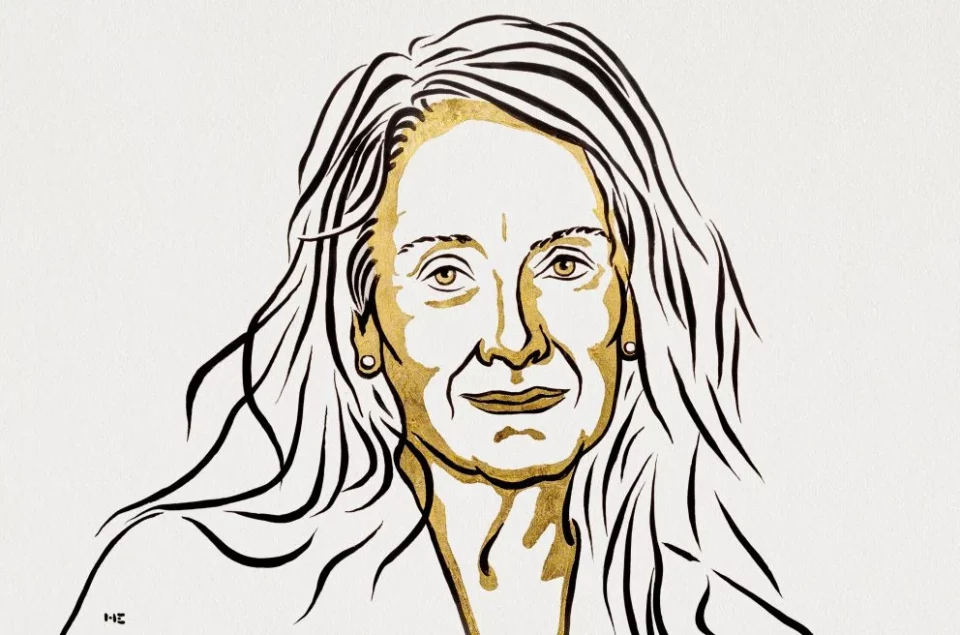French author Annie Ernaux, known for her deceptively simple novels drawing on personal experiences of class and gender, won the Nobel Literature Prize on Thursday, the jury announced.
Ernaux, 82, was honoured “for the courage and clinical acuity with which she uncovers the roots, estrangements and collective restraints of personal memory”, the jury said.
Interviewed on Swedish television immediately after the announcement, Ernaux said it was a “very great honour” and “a great responsibility”.
Her more than 20 books, many of which have been school texts in France for decades, offer one of the most subtle, insightful windows into the social life of modern France.
Above all Ernaux’s crystalline prose has excavated her own passage from working-class girl to the literary elite, casting a critical eye on social structures and her own complicated emotions.
Her legacy is the grit in the French literary oyster, or as she puts it, to offer an alternative to the “unconditional admiration for the pretty phrase.”
Read: Three scientists win Nobel Prize for click chemistry
“In her writing, Ernaux consistently and from different angles, examines a life marked by strong disparities regarding gender, language and class”, the Swedish Academy noted.
“Her work is uncompromising and written in plain language, scraped clean”, it said.
“And when she with great courage and clinical acuity reveals the agony of the experience of class, describing shame, humiliation, jealousy or inability to see who you are, she has achieved something admirable and enduring”.
Diversity pledge
The Nobel Prize comes with a medal and a prize sum of 10 million Swedish kronor (about $911,400).
Last year, the award went to Tanzanian-born novelist Abdulrazak Gurnah, whose work focuses on the plight of refugees and exile, colonialism and racism.
Ernaux will receive the Nobel from King Carl XVI Gustaf at a formal ceremony in Stockholm on December 10, the anniversary of the 1896 death of scientist Alfred Nobel who created the prizes in his last will and testament.
Ernaux, whose name has circulated in Nobel speculation for several years, is the 17th woman to win the prestigious prize, out of 119 literature laureates since the first Nobel was awarded in 1901.
The Swedish Academy has in recent years pledged to make the prize more diverse, after a 2017-2018 #MeToo scandal that left it in tatters.
Read: French-US-Austrian trio win physics Nobel for quantum mechanics work
Famed — and lambasted — for its Eurocentric Nobel picks dominated by men, the jury has repeatedly maintained, however, that its prize is neither political nor subject to gender or ethnic quotas.
It has insisted that its only criteria is the quality of a writer’s body of work.
The Nobel season continues on Friday with the highly anticipated Peace Prize, the only Nobel announced in Oslo.
Punters have suggested this year’s prize could sound the alarm over the war in Ukraine or the climate.
The Economics Prize wraps up the 2022 edition of the awards on Monday, October 10.


